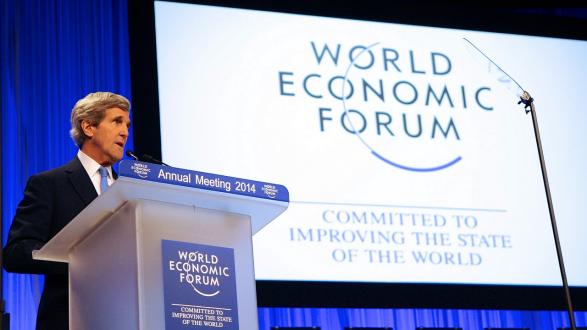In:
The World Economic Forum (WEF) ranked the United States third in its 2014-2015 Global Competitive Index. Despite the severe recession following the global financial crash of 2009, the United States remains the world’s most productive economy and its largest consumer market.
However, experts warn that the United States needs a long-term strategy for bolstering innovation and economic growth, and raising the living standards of its citizens.
What do U.S. policymakers, business leaders, and others need to do to foster productive and innovative industries? What are the most important factors affecting U.S. competitiveness?
The Background
- The United States took third place in the WEF’s 2015-2016 Global Competitiveness Report. According to WEF, a nation’s competitiveness depends on 12 ‘pillars’, including: strength of public and private institutions, state of infrastructure, quality of education and healthcare, and innovation.
- After falling to seventh place during and after the Great Recession, the United States climbed back up to its current third place ranking, now trailing only Switzerland and Singapore.
- According to WEF, the foundation for U.S. competitiveness lies in its “human capital… and sophisticated businesses and capacity for innovation, with high levels of spending on research and development and good collaboration between the private sector and academia.”
- According to the Department of Labor, U.S. unemployment is at its lowest level since 2008 .
- The Harvard Business Review and Professor Michael Porter conducted a survey of Harvard Business School (HBS) alumni on the perceived state of U.S. competitiveness in 2013-2014. According to the resulting report, HBS alumni believed business leaders must play a role in restoring U.S. competitiveness, by ending political gridlock and increasing collaboration between private and public institutions.
- The HBS survey highlights private and public investment in K-12 primary education, workplace skills, and transportation infrastructure as critical to maintaining U.S. competitiveness. These findings are very similar to the WEF report.
Looking Ahead: Members Weekend 2015
Mr. Eric Eide, Director of International Trade in the Office of Mayor Eric Garcetti, will lead an active working group discussion on this issue at Members Weekend 2015. He will be joined by Dr. Kati Suominen, founder and CEO of TradeUp Capital Fund and Nextrade Group, LLC, and Dr. Edward Kleinbard, the Ivadelle and Theodore Johnson Professor of Law and Business at USC’s Gould School of Law.
How can we revitalize U.S. global competitiveness? Stay tuned for the results of that session.
Meanwhile, share your own opinion on social media: how can the United States ensure its globally competitive future? Tweet at us @PacCouncil: you can follow along and join the conversation on October 9 and 10 using #membersweekend.




